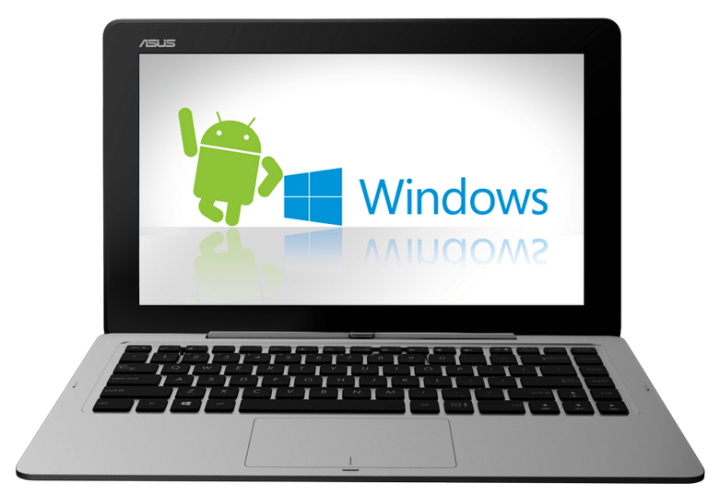
The future of computing will not be dominated by dual-booting laptop/tablet combo devices. At least, not anytime soon, according to a Wall Street Journal report.
Asus has quietly put their dual-booting Windows/Android notebook, the TransformerBook Duet TD300, on ice, after showcasing it at CES 2014 this past January. The Duet was slated to be a laptop with a tablet-esque detachable screen, while allowing users to switch between Windows and Android with the push of a single button. With every hardware-maker working to find that happy medium between tablet simplicity and laptop PC functionality, the Duet was an attempt at making a one-size-fits-all PC that could be appealing to a broad base of potential users.
However, neither Microsoft or Google were reportedly happy with the idea of two operating systems co-mingling on a single device. People with knowledge of the issue stated that both companies were unhappy with the prospect of a device that where their operating system might play second fiddle to the other. According to the Journal’s anonymous source, Microsoft would simply not tolerate Asus making a computer that dual-boots Windows and Android. Google responded strongly as well, saying they would only be happy with devices running Android as a solo act.
For both Microsoft and Google, getting manufacturers to ship devices running their OS is a means to a larger end; pushing users to use their larger web of services.
We reached out to Asus for comment, and we will update this story accordingly if we are provided with any additional information pertaining to this matter.
Editors' Recommendations
- How to set up Windows 11 without a Microsoft account
- How Intel and Microsoft are teaming up to take on Apple
- How to convert a PowerPoint to Google Slides
- How to create a slideshow in Google Photos on mobile and web
- How to take a screenshot using a Microsoft Surface


